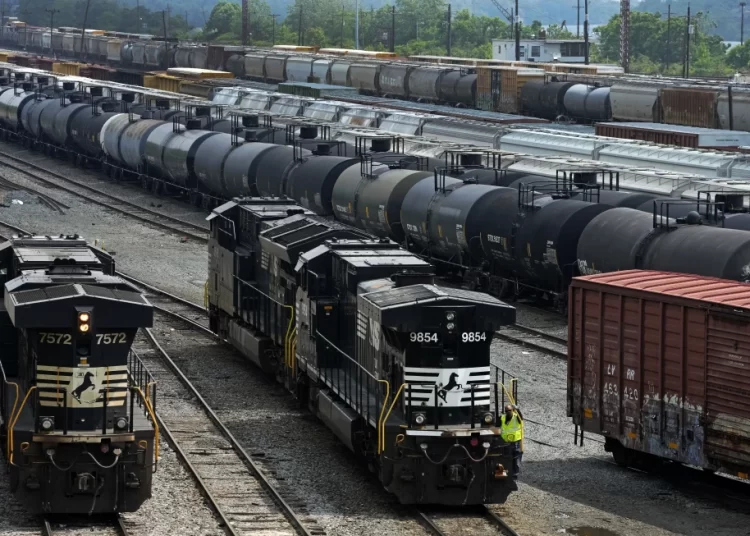HARRISBURG — Spurred on by train derailments, some states with busy criss-crossing freight railroads are pursuing their own safety remedies rather than wait for federal action amid industry opposition and questions about whether they even have authority to make the changes.
The activity comes after a train carrying toxic chemicals derailed on February 3 along the Ohio-Pennsylvania border, prompting new legislation and reviving long-stalled efforts as backers voice skepticism that the federal government is capable of helping.
Legislatures in at least a dozen states have advanced measures in recent weeks, including some in states such as Minnesota that have witnessed disruptive derailments.
Some of the new requirements include provisions long resisted by the railroad industry. It contends it’s capable of making improvements and that its growing efficiency — including significantly longer trains and a much smaller workforce — doesn’t compromise safety.
In large part, states want limits on the length of trains that routinely stretch more than 2 miles long and on how much time trains can block road crossings — which can disrupt traffic and block emergency response vehicles.
They are also pursuing rules to maintain the current standard of two-person crews, bolster the trackside detectors used to identify equipment problems and require more notice to local emergency responders about hazardous freight.
The railroads argue that the industry’s overall safety record has been improving even as trains have grown longer and crew sizes shrank over the decades. So Norfolk Southern CEO Alan Shaw said in an interview that he doesn’t think it makes sense to regulate those areas.
“We’re going to follow the science and we’re going to follow the data,” Shaw said. “We’re looking for investments in safety that are going to drive favourable outcomes.”
And the state efforts to regulate rail are fraught with legal uncertainty over whether only the federal government can enforce such requirements. And Congress and federal regulators are considering similar measures.






Discussion about this post